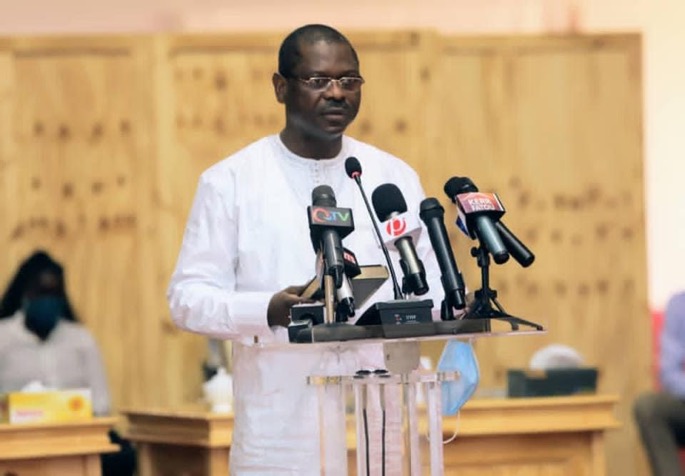Gambia’s Revenue, Grants, and Financing for 2025 Exceed D52.9 Billion

By Ramatoulie Jawo
The 2025 budget, tabled before the National Assembly by Hon. Seedy Keita, Minister of Finance and Economic Affairs, projects total revenue, grants, and financing at D52.98 billion, with a total appropriation of D37.85 billion.
Presenting the draft budget, Hon. Keita stated that the 2025 fiscal plan focuses on reducing overall fiscal deficits, achieving debt sustainability, and enhancing economic growth by investing in human capital, infrastructure, and agriculture.
The Minister highlighted the ministry’s continued efforts to streamline expenditures, enhance domestic revenue mobilization, restructure debt profiles, and prioritize concessional financing for infrastructure projects under the National Development Plan.
Regarding revenue estimates, Hon. Keita revealed that the total revenue and program grants for 2025 are projected at D32.1 billion, a 24% increase from the D25.93 billion approved for the 2024 budget. This growth is attributed to significant increases in both domestic revenue and program grants. Tax revenue is expected to rise by 23%, driven by policy reforms, strengthened tax enforcement, improved tax compliance, and the implementation of digital solutions for better administration.
“On the revenue estimates for 2025, total revenue and programs grants is projected at D32.10 billion representing an increase of 24% compared to the approved 2024 budget of D25.93 billion. This is as a result of significant increases in both domestic revenue and program grants for 2025 tax revenue is expected to increase by 23% primarily driven by continued tax policy alignment view of investment code to strengthen control on tax expenditure policy actions to support tax compliance, enhanced enforcement measures, and the implementation of digital solutions to improve administration,”he said.
He noted that Non-tax revenue is also forecasted to grow by 45% in 2025, largely due to the expected receipt of D3.5 billion (US$50 million) from the second tranche of the Senegambia Bridge Asset Recycling Program.
Hon. Keita highlighted that the 2025 estimates include a budget support of D3.01 billion from international development partners, compared to D3.18 billion in 2024. The World Bank is expected to contribute D2.065 billion (US$29.5 million), while the European Union is projected to provide D945 million (€13.5 million).
The minister also noted that the 2025 salary increase would result in a total rise of 60% from 2022 to 2025, bringing the cumulative increase to 110% under the leadership of President Adama Barrow. This, he said, reflects the government’s people-centered approach to budget allocation, aiming to improve the livelihoods of Gambians. An additional D1 billion has been allocated to the energy sector to ensure a reliable electricity supply.
“This 2025 salary increment will make a total salary increase of 60% from 2022 to 2025, and it will bring the total salary increase to 110% under the leadership of president Adama Barrow this is a manifestation that the budget allocation of the government is people-centric with the aim of improving the lives and livelihoods of Gambians Another significant allocation is D1 billion to the energy sector to ensure reliable supply of electricity,”he told lawmakers.
Hon. Keita pointed out that debt service remains the largest expenditure item in the 2025 budget, with D11 billion (29% of the total budget) allocated for this purpose. This is attributed to the resumption of debt servicing after the end of the Debt Servicing Suspension Initiative, which was implemented in response to the COVID-19 pandemic.
” This is due to the commencement of the debt servicing following the end of the Debt Servicing Suspension Initiative which was triggered by COVID-19 response,” he said.
The minister also noted a projected increase in personnel emolument expenditures from D7.39 billion in 2024 to D8.93 billion in 2025. This rise is mainly due to the anticipated D1.54 billion impact from salary increases, as well as adjustments to transport and residential allowances.

